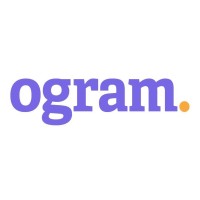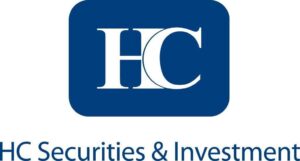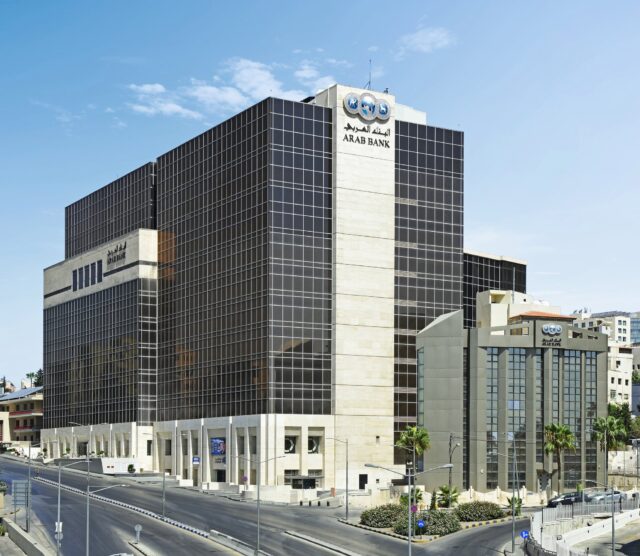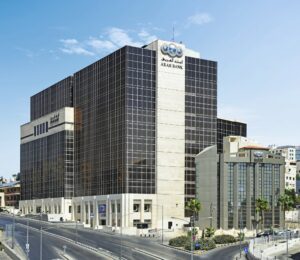

Looking at the UAE’s office sector figures, rental performance in Abu Dhabi’s occupier market showed substantial improvement with average Prime, Grade A and Grade B rents recording growth rates of 11.0%, 5.7%, and 7.8% respectively in the year to Q2 2023. Given the scarcity of available supply and the lack of upcoming new stock, we expect to see strong performance continue in the second half of 2023. In Dubai, the total number of new Ejari (lease) registrations in Q1 reached 20,953, up 58.5% from the previous year. The average occupancy rate reached 92.7% as of Q2 2023, up from 84.8% a year earlier on the back of increased demand and limited availability of quality supply. These elevated occupancy rates continue to drive the increase in average rents in Dubai’s office market, where in Q2 2023, average Prime, Grade A, Grade B, and Grade C rents have grown by 17.2%, 11.0%, 16.4%, and 30.0%, respectively. Given the lack of available quality stock and the very limited amount of imminent future supply and strong pre-leasing activity, we expect rents to continue their upward trajectory throughout the remainder of 2023.
In Abu Dhabi’s residential market, a total of 2,487 sales transactions were recorded in the second quarter of 2023, marking a growth of 101.1% compared to a year earlier. Compared to Q2 2022, average apartment and villa prices in the UAE capital registered year-on-year increases of 0.9% and 1.7%, respectively. In Abu Dhabi’s rental market, average apartment rents marginally increased by 0.1%, and average villa rents grew by 1.0%. In terms of supply, mid-way through the year, 1,265 units have been completed in Abu Dhabi, where 65.8% of this supply has been delivered in Al Raha Beach and Najmat Abu Dhabi. A further 4,538 units are expected to be completed over the last two quarters of the year, with 49.0% of this upcoming stock scheduled to be delivered in Al Maryah Island.
In Dubai, a total of 9,876 residential transactions were registered in June 2023, marking an increase of 18.8% compared to the year prior. Over this period, while off-plan market sales increased by 44.9%, secondary market sales marginally dropped by 0.5%. Despite the recent marginal drop-off in secondary market sales, activity levels in Dubai’s residential market remained robust in the year’s first two quarters, where in the year to date to June 2023, the total transactions volume reached 57,738. This is the highest total on record over this period and marks an increase of 43.2% compared to the same period a year earlier. Average prices in Dubai increased by 16.9% in the year to June 2023, with average apartment prices increasing by 17.2% and average villa prices by 15.1%. Despite that the average apartment sales rates are still 13.1% below the record highs of 2014, average villa prices currently sit at 5.5% above this peak. That being said, a number of neighbourhoods have long outperformed their 2014 levels. The rate of rental growth continued to moderate for the fifth consecutive month in Dubai, with rents increasing by 22.8% in the year to June 2023, down from 24.2% in May 2023. Over this period, average apartment rents increased by 22.7%, and average villa rents increased by 23.1%. On the supply front, a total of 16,499 units have been completed and delivered in the year’s first two quarters, where new stock in Downtown Dubai, Dubai Creek Harbour, and Business Bay accounted for 44.6% of this recent supply. By the end of this year, an additional 45,380 units are expected to be completed, with 39.6% of this upcoming supply being developed in Meydan One, Business Bay, and District Seven. Moving forward, we expect that rental rates will continue to moderate. This is due to a reduction in asking rents in a number of key residential areas, particularly in the apartment segment of the market, where rents in several prime communities are now heading towards a single-digit growth.
Looking at the hospitality sector, the average occupancy rate in the UAE rose by 4.1 percentage points year-on-year, in the year to date to June 2023. Over the same period, ADRs dropped by 1.9%, however average RevPARs saw an increase of 3.6%. Despite this year-on-year moderation in ADR figures, the average ADRs across the UAE have surpassed the 2019 benchmark by 16.4%, given the elevated ADR levels in Sharjah, Dubai, Abu Dhabi, and Fujairah, which have recorded increases of 20.1%, 15.2%, 12.8%, and 8.1%, respectively. As a result, these cities’ RevPARs have outperformed their 2019 levels by 22.4%, 19.7%, 10.1%, and 22.0%, respectively. Average occupancy rates across the majority of locations within the UAE have topped their 2019 levels. Nonetheless, Abu Dhabi is the only city that is still below its pre-pandemic benchmark by 1.7 percentage points. Currently, the UAE is also benefiting from the reopening of the European tourism market. Given the UAE’s hub status, tourists are both deciding and being induced into breaking-up their trips to the continent, which is helping drive demand and profitability in what is usually low season. Over the remainder of the year, we will likely see continued growth in the sector’s KPIs on the back of several key upcoming events, including but not limited to the Abu Dhabi F1 Grand Prix, the COP-28 summit and the gradual return of key source markets, which have only recently been able to freely travel post COVID.
In the retail sector, strong levels of take-up continue to be seen in Abu Dhabi in the second quarter of 2023, where the total number of retail rental contracts registered reached 7,494, up by 7.4% compared to the year prior. Over this period, new registrations increased by 1.9%, and renewed registrations increased by 10.2%. In Dubai’s retail market, a total of 17,463 rental contracts were registered in Q2 2023, marking a growth rate of 1.3% compared to the year prior. Over this period, the number of new registrations dropped by 15.3%, whereas renewals grew by 11.9%. In both cities, the trends have been relatively uniform, where demand is highest for prime retail spaces or for retail spaces which have desirable catchment areas and a range of destination drivers. With both markets lacking the availability of such units, we are seeing remerchandising or the introduction of new destination drivers to attract and cater to such occupier requirements. Given these high levels of demand and very limited levels of availability in prime and core assets, we are seeing strong rates of rental growth in both Abu Dhabi and Dubai. As at Q2 2023, average retail rents in Dubai reached AED 472 per square foot, a 38.0% increase from a year earlier. Over the same period, lease rates in Abu Dhabi have grown by 16.9% reaching an average of AED 2,075 per square metre.
The UAE’s industrial and logistics sector has seen relatively strong levels of activity over the course of the second quarter of 2023. In the year to Q2 2023, the total number of rental registrations in Abu Dhabi’s industrial and logistics market grew by 18.8%. Over this period, new registrations increased by 8.2%, and renewed contracts registered grew by 26.2%. In Dubai, a total of 2,248 rental transactions were registered in the second quarter of 2023, based on data from the Dubai Land Department, increasing by 3.6% compared to the year prior. Over this period, new registrations considerably dropped by 24.9%, whereas renewals grew by 22.5%. On the back of strong demand, in the year to Q2 2023, average rental rates in Abu Dhabi and Dubai increased by 6.4% and 19.0%, respectively. The scarcity of available quality stock resulting from the lack of new developments will continue to drive rental growth over the second half of 2023, albeit we expect that growth rates will now begin to moderate on average. In Dubai, developers are highly interested in building stock on-shore. That being said, the availability of appropriate infrastructure to do so is the largest inhibitor. In Abu Dhabi, on the other hand, both infrastructure and lands are available for such developments; however, that is not currently matched by developer demand.
Taimur Khan, Head of Research – MENA at CBRE in Dubai, comments: “Performance in the UAE’s real estate sector remained strong in the first half of 2023, however we have started seeing moderation in parts. With the global macroeconomic optimism returning slowly, the UAE’s growth prospects remain relatively positive. That being said, this solid outlook is contingent on how the rising interest rates, elevated housing costs (particularly in Dubai) and the weakening US Dollar will impact the country’s economy. Over the remainder of the year, the real estate sector will likely maintain its considerably strong performance and activity levels. Nonetheless, we expect that growth rates will moderate further in a number of segments, given the prevailing market fundamentals.”



















